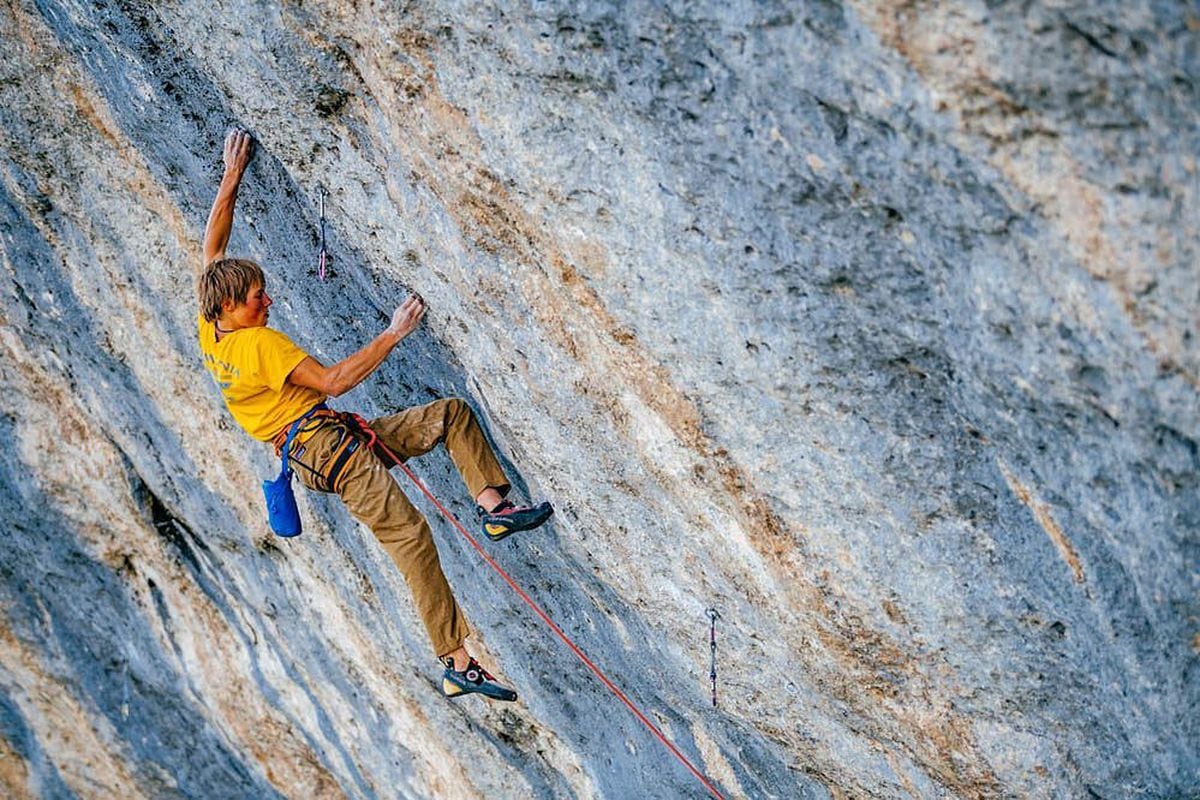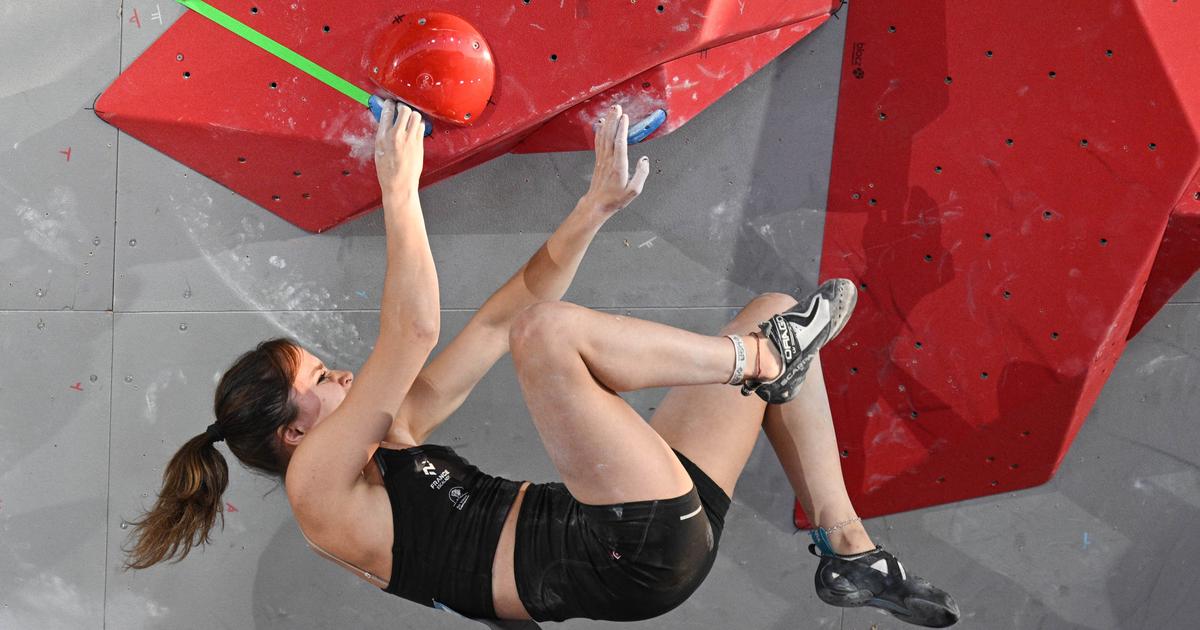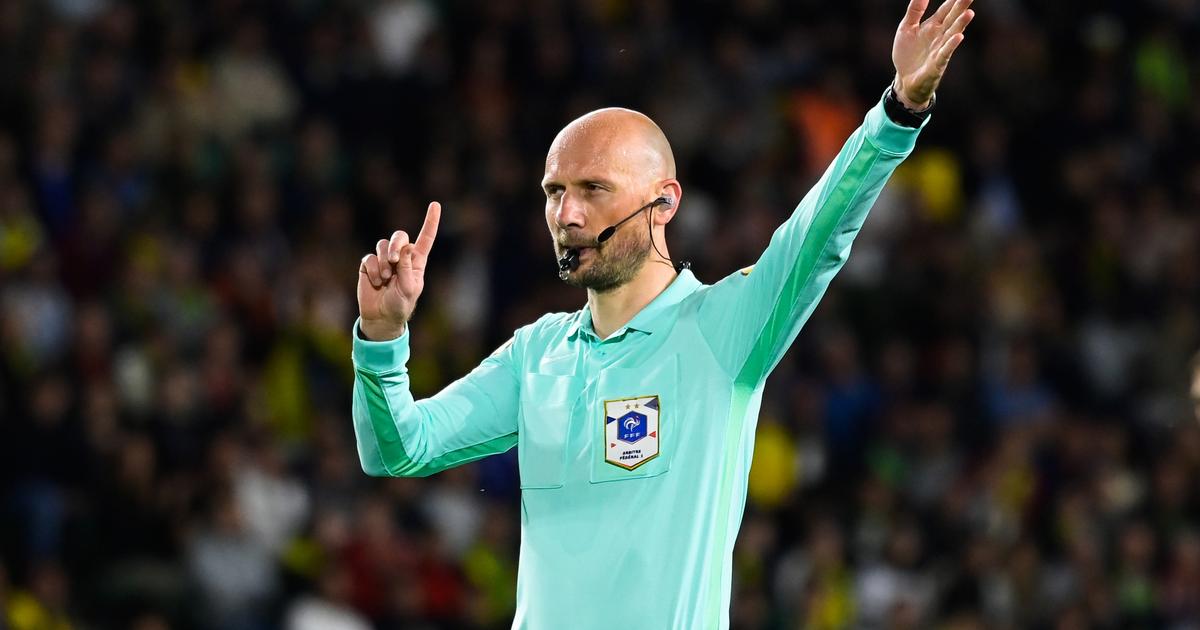Imagine, for example, the women's triple jump final at the Tokyo Games, a contest with no judges, no tape measure, or any way to measure the jumps of the participants.
After jumping, each athlete writes down on a blackboard the estimated distance reached, null if they think it exists.
To record their records, they are based on their enormous experience, their sensations, their past records, on the subjective perception of the space traveled in flight ... and nobody disputes the word of the three best, the ones that take the medals.
More difficult still: imagine football without referees.
The absence of judges and regulations would be pure fiction in practically all sports but it is our daily bread in climbing. And although there is already an Olympic champion (the first, the Spanish Alberto Ginés) as a result of a competition perfectly regulated and supervised by the judges, there is a parallel universe called rock climbing where the absolute challenge is to push the limits of life to the unknown. difficulty that the human being can assume. Until the Olympic event, two climbers deserved all the attention of the spotlight: the Czech Adam Ondra and the German Alex Megos. Not only could they win a medal, but they had been able to reach the highest difficulty ever achieved on the rock: 9c (on a scale that begins in the fourth grade and increases gradually when reaching the sixth: 6a; 6a +; 6b ; 6b +; 6c; 6c +; 7a ...and so on until the maximum difficulty).
Ondra was the first to reach the 9c on a track dubbed
Silence
, in Flatanger (Norway). It was in 2017 and Alex Megos jumped on the bandwagon in 2020 by signing the first ascent of the Bibliographie route, at the French school in Céüse. No one doubted the proposed difficulty. In fact, this is how the establishment of degrees of difficulty works: one person equips a route, and the first to climb it freely (without hanging down to rest and without grabbing the safety pins) proposes a degree of difficulty that the rest of the climbing community must endorse by consensus. Of course, although democratic, it is not an infallible method and it lends itself, of course, to the subjectivity, the state of form and the specific qualities of climbers. It is not uncommon for the grade of a road to change up or down over time. And this is what has just happened with the 9c proposed by Megos.
Last week, the Italian Stefano Ghisolfi became the third climber to reach the 9c club, repeating the feat of Megos on the same route. Two days later, he dropped a bomb on his social networks: in his opinion the route did not deserve such a distinction and in his opinion it was a 9b +. His opinion revealed Megos, on the other hand one of the very few climbers to have exceeded the 9b + bar and the first to climb
on sight
(without knowing the route or having ever tried it) a route of difficulty 9a.
It remained to be seen if Megos would defend his proposal.
He did not: in a statement, the German assumed that his proposal was perhaps exaggerated and honestly argued his position: “9b +?
9c?
What is the difference and how do you know what grade to give?
At first, I thought that the number of days you spend on a climb was the best indicator of its difficulty.
Consequently, I thought that, in rehearsing 'Bibliographie'
for 60 days, the route had to be harder than any other that had been climbed before (to sign up for the
Perfect World
route
,
9b +, he needed 16 days).
When the world spread that I had made the road, people immediately began to speculate.
I've always had the feeling that 9c might not be the appropriate grade
for the line, but I felt pressured by the world of climbing, which was already saying that it had to be 9c if it had taken me 60 days.
In the end, I didn't feel good about the grade either, because I simply changed my sequences many times, made long breaks on the track and struggled to compare it with other tracks I'd done.
I underestimated how much of a difference knowing the correct sequence makes.
At
Bibliographie
, I thought I had good sequences until I came back a season later to completely change them.
And that happened twice.
So in the end I probably spent the better part of those 60 days putting out sequences, changing them again and not being sure if I could do it.
Instead, Stefano
Ghisolfi and some others found new
sequences for both key steps, simpler sequences that I couldn't find. I am very grateful for your honest opinion, Stefano. I agree with the 9b + and now I'm going to keep looking for the next potential 9c ”.
Scaling involves solving problems to get from A to B in the simplest way. A route can be climbed in many ways, but there is always a more efficient way, although the way that suits one climber may not be suitable for another. As an illustrious coach often recalls, when one of his most illustrious pupils got terribly stuck on a step on a 9a + difficulty route, he decided to climb to the point in question, hang up and try the movements: he suggested a different sequence, that is, , grab the prey in another order. The pupil managed to chain the route immediately: with the proper sequence, the route seemed to him what its grade indicated, but until that day it seemed extraordinarily more complicated.
Alex Megos is not suspected of having proposed a grade knowing that it was inflated, but it is worrisome to read that he has been pressured by the environment: in this case, a more adjusted solution would have been to propose an intermediate grade, that is, 9b + / 9c , without getting completely wet and leaving the proposal open to the consensus of future repeaters. In this way he was cured in health while showing his doubts in a transparent way. Of course, a low-profile proposal wouldn't have gotten all the media attention it got back in the day.
The case of Megos reveals the beauty of the choral way of approaching rock climbing, with a non-competitive spirit, but also the limits of its self-regulation, a problem that has generated endless debates in the climbing world. On the basis that the climbing grades are indicative, all the big jumps in the limits of the difficulty should be taken with tweezers, quarantined until the passage of time places each supposed feat in its rightful place. Suddenly, everyone turns to the 9c proclaimed by Adam Ondra weighing two possibilities: that it does not reach the 9c or ... that it is even more difficult than the Czech thinks.
You can follow EL PAÍS DEPORTES on
and
, or sign up here to receive
our weekly newsletter
.










/cloudfront-eu-central-1.images.arcpublishing.com/prisa/S7UVDTX7DREC7DXVCZN6MEKGBY.jpg)




